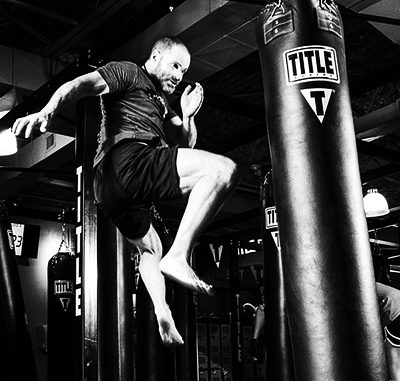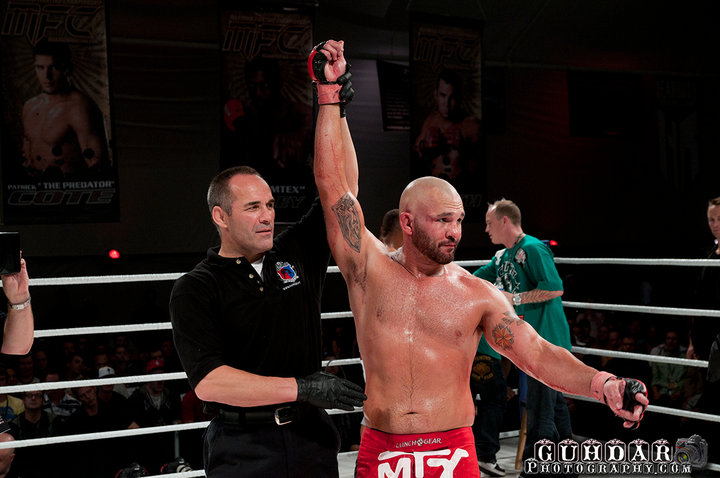
As we live our incredibly busy lives full of family responsibilities, bills to pay, endless traffic, stresses from work or boss, we are faced with with the task of dividing our time and efforts to the myriad of tasks that we both have to and choose to do. To give structure to many of the regular activities that demand our time and attention, we and the society around us often arrange these activities within an invention called the “week”. Most of us go to work on a schedule based on days of the week. Some of us attend religious activities on Sunday or Saturday – a designated day of the week. We watch our television shows on certain times on certain days of the week. The week is the king of the schedule.
If we aren’t full-time fighters, it is sometimes amazing that we can even devote one time slot a week to training in the sport of our choice. Of course, we both know we’re probably not going to win fights in any big international MMA promotion by training just once a week. Though there have been sterling examples of MMA competitors who have 9 to 5 day jobs but who are at the same time are competitive in the top echelons of the sport, I seriously doubt these heroes and heroines confine their training sessions to just once a week. For the rest of us mortals, just being at the top of our game and being competitive is good enough. But, can we keep competitive even if we limit our training to once a week?
Don’t get me wrong, running after a championship belt or fighting for the fighter’s purse is a noble and courageous thing, an endeavor which will test a man’s (or woman’s) physical, mental and spiritual limits, I’ve been there too. However, for many of us there comes a time when other priorities come into view, and we decide to put ahead other activities before training to be a lean, mean fighting machine, such as spending time with the family, building up your career, and perhaps other equally stimulating hobbies or passions in our lives.

Training once a week is enough
Here in the MFTWM blog, we think that training once a week is enough if your purpose is to keep on top of your game, constantly improve and be competitive.
When I was given this overseas assignment I’m currently serving because of my job, I made a commitment to limit my training sessions to once a week. I go every Saturday and damn hard. MMA is something that I enjoy tremendously and gives me much personal fulfillment, but there’s a lot I could trade for for the time I spend training. I could spend the time at home with my wife who happens to be heavily pregnant at the time of writing, help out with the household chores, share my ideas through this blog, read up on related news and current events which could broaden my view at work, walk my dogs, or study Mandarin Chinese. There’s a host of other tasks I can engage in to live a balanced, healthy life.
Lots of experts will say that you have to train at least twice or thrice a week to make any substantial progress in a sport. I think otherwise. It seems like training once a week hits the sweet spot for me. If you’ve got a lot going on, once a week is sufficient to make good progress in your training. For me, it’s all about the long haul, keeping your training on year after year. However, if we plan to train once a week, it’s important that we make each training session count. There are a few concepts I like to apply to make the most of my training sessions.
Prioritizing technique over conditioning.
The benefits of physical conditioning are a temporary, meanwhile the benefits of working on technique will stay with you for practically a lifetime. An hour you spent doing push-ups and wind sprints will not matter much a few years down the line, but if it were spent this time practicing technique, like say armbar defense, the skills you pick up will stay with you long after. This especially true is you spend time polishing high-percentage techniques. Also, technique is intrinsically more valuable than conditioning. No amount of bench press strength will stop a sunk-in choke of an able-bodied man, and doing bicep curls daily might not do much to stop your arm from popping from a well-positioned armbar. In any case, just by working on your techniques and by sparring you already should be getting quite a workout, provided you spar with intensity and give your earnest physical and mental efforts when you do.
Part of prioritizing technique over conditioning is knowing and acknowledging your strengths and weaknesses. If you’ve been training in martial arts for some time, chances are there are somethings you might know pretty well already and there are some skills which might need more work. For example, if you aren’t well-versed in leg locks, you could access one of the many available books and online resources which can teach you leg locks and the defenses to them. If you’ve always been hesitant with your stand-up striking game, put on some gloves and spend some time duking it out. At the same time, don’t value and expand on your strengths, as this is what gives you your winning game. Do you happen to be a kimura expert? Explore all kinds of set-ups, combinations and variations of this move. Or perhaps you’ve got deadly heads kicks which have the potential to land someone in the hospital? Make them deadlier.
Bring physical conditioning outside the gym
The physical conditioning aspect of the sport is something your can work on outside the formal training sessions. There are lots of ways you can keep fit without having to drive to your gym.
One thing I’m a big fan off is bringing your lifestyle of fitness into your home. There are a lot exercises you can do by including them in your daily routine or involving your family members. Why don’t you bring your wife or kids with you when you go out for a run? It wouldn’t matter in the long run how fast you run your circuit or how much you push your anaerobic threshold anyway, but rather how much fun everyone has. How about getting them involved in your home workouts? Why don’t you let junior or, if you’re brave enough, your spouse sit on your back when you do push-ups?
Generally, the frequency conditioning exercises are done are more important factor than the volume of the exercises. Meaning, you’ll get a lot more results doing one set of pull-ups every morning before going to work, rather than doing five sets of pull-ups once every weekend.
More important than the hours you put into practice sessions is how smart and effective you train, the intensity you put into it and your perseverance and long-term commitment. We could all benefit from stepping back and examining what our involvement in MMA and its related martial arts is really for? Are you training for that nice, shiny championship belt, that fighter’s purse, and the fame and glory. Or could it be that your training in martial arts for more profound purposes? For some of us, training in martial arts is a way of life, a commitment to a healthy and balanced life, a road to self-fulfillment and discovery.
It’s your move, hombre. I’ve said my piece, now it’s time for you to react. How often do you train? How you schedule your training schedule and how you juggle it with all your other commitments? What keeps you training year in and year out? Feel free to place in the comments section below.
(*Update 10/27/17: Since the time of writing I now have two baby girls.)


I also train once a week (every Saturday just like you). To be honest I would actually like to train AT LEAST twice a week if my schedule and 46 year old body would allow me to. I prefer my strength and conditioning training more for injury prevention than anything else. I also try to dedicate some spare time studying my books, magazines and videos outside of my once a week training sessions.
Yeah, twice a week seems to be the sweet spot for most of us human. I guess for me personally, I always see that “missing” other one training session and think to myself I should instead spend it playing with the kids or working on one my projects. Kudos to you for keeping your martial arts mind sharp, by the way.
Thank you.
Actually I’ve come to realize that you’re right. Once a week is definitely that sweet spot that will benefit my training the most. Re-reading this article after reading the one about why doing 10 push ups everyday is better than doing 100 push ups a day helped me to see the light. I cannot possibly thank you enough. Your blog is one of the best I have come across in a very long time.
Take care,
Damon.